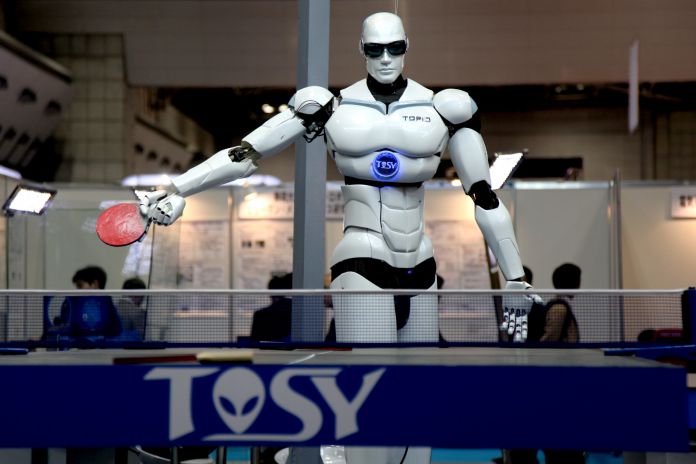If there's one thing that science fiction movies have shown us, it is that those pesky machines cannot be trusted. With development of robots now reaching an advanced stage and autonomy on the doorstep, the European Parliment is pressing for comprehensive rules on human interaction with artificial intelligence.
A draft report released by the European Parliment says that robots should have a built in kill switch. This would allow any function or the whole robot to be shut down when needed.
While this may seem unnecessary, MEPs point out that world is coming to a robot revolution in industry. Also, robots are becoming advanced enough to be given status as “electronic persons”.
The report adds: “humankind stands on the threshold of an era whenever more sophisticated robots, bots, androids and other manifestations of artificial intelligence (“AI”) seem poised to unleash a new industrial revolution, which is likely to leave no stratum of society untouched, it is vitally important for the legislature to consider all its implications.”
Science fiction serves as inspiration the report, pointing to robotic rules by writer Isaac Asimov. These basic rules have been used in numerous works since and present basic regulation for robotic machines with autonomy.
These rules state:
- A robot may not injure a human being or, through inaction, allow a human being to come to harm
- The robot must obey the orders given by human beings except where such orders would conflict with the first law
- A robot must protect its own existence as long as such protection does not conflict with the first or second laws
Challenges of Robots
The goal of robots should be to help people and users interact with them without the possibility of physical or mental risk. The report is certainly not a preparation paper for when technology catches up. Instead, it is an extensive 22-page report with regulations, rules, and recommendation for the full adoption of robots.
In a BBC report, Lorna Braell of law firm Osborne Clarke expressed surprise about the need for a legal status as an electronic person.
“Blue whales and gorillas don't have personhood but I would suggest that they have as many aspects of humanity as robots, so I don't see why we should jump into giving robots this status.”
Robots present many excellent opportunities to further industry and other aspects of life. However, the European Parliament also points out how robotics will present many challenges for society. For example, many jobs currently performed by humans will be taken over by robots. There are concerns about employment in the future and “the viability of social security systems if the current basis of taxation is maintained.”
Last Updated on July 17, 2019 12:18 pm CEST by Markus Kasanmascheff






